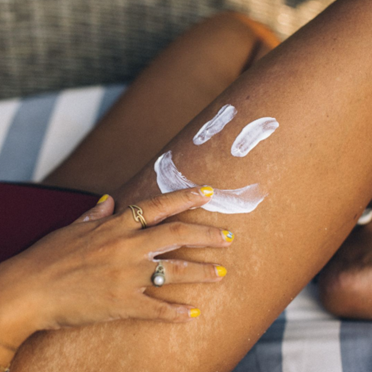Understanding SPF and Tips for Staying Safe in the Sun

No matter the weather, it is important to protect your skin from harmful UV rays. SPF is the most important step in any skincare routine (even during those endless cloudy days in British winter!). Even when it is cloudy, up to 80 percent of the sun’s UV radiation reaches the earth*. Going unprotected, even on an overcast day can lead to skin damage. Did you know that UV sun exposure is responsible for 90% of visible changes to the skin?**. This damage is also referred to as photodamage and is one of the primary causes of premature skin ageing, melanoma and other skin cancers. Sun protection isn't just about avoiding painful sun burn; it's about safeguarding the skin from long-term damage and reducing the risk of skin cancer. This post looks at the importance of SPF and Tips for Staying Safe in the Sun.
Understanding SPF
SPF, or Sun Protection Factor, measures a sunscreen's ability to protect your skin from the sun's harmful ultraviolet (UV) rays. The higher the SPF number, the higher the level of protection. Specifically, SPF indicates how much longer it would take for your skin to burn with sunscreen compared to without. For example, an SPF 30 means it would take 30 times longer for your skin to burn with the sunscreen applied than if you were unprotected.
It's recommended to use a broad-spectrum sunscreen with an SPF of 30 or 50 to protect your skin from both UVA and UVB rays. According to the Skin Cancer Foundation, regular daily use of SPF 15 or higher sunscreen, when used as directed, can reduce the risk of developing squamous cell carcinoma by about 40 percent and lower your melanoma risk by 50 percent*. But don’t worry it is still possible to enjoy the sun safely, especially if you follow these simple tips:
Tips for Safe Sun Exposure
- Apply sunscreen everyday. Use generously, ensuring you apply enough sunscreen to cover all exposed areas of your skin. Don't forget areas like your ears, neck, and scalp!
- Reapply sunscreen frequently. Reapply sunscreen every two hours, or more often if you're swimming or sweating heavily.
- Seek shade: Limit your time in direct sunlight, especially during peak UV hours between 10 a.m. and 4 p.m. Check the UV of your area- this often shown on the weather app on your phone!
- Wear protective clothing: Opt for lightweight, long-sleeved shirts, wide-brimmed hats, and sunglasses to shield your skin and eyes from UV rays.
What to look for when choosing a sunscreen
SPF 30 or higher
Essential for daily skin protection, especially when enjoying longer outdoor activities like distance running, hiking, swimming, and outdoor sports. SPF 30 or higher is especially important if you work outdoors.
Water resistant and very water resistant
No sunscreen is waterproof. But you can get sunscreens suitable for swimming or intense exercise. They will eventually wash off meaning you need to be more vigilant when topping it up. Sunscreens labelled water resistant are tested to be effective for up to 40 minutes of swimming, while very water resistant sunscreens remain effective for up to 80 minutes in the water.*
Broad spectrum
Always look out for ‘broad spectrum’ on your sunscreen label. Broad spectrum sunscreen means that it offers protection from both UVB and UVA rays. UVB rays have shorter wavelengths and affect the outer epidermis layer of the skin, causing sunburn, tanning and some skin cancers. UVA rays have longer wavelengths and penetrate deeper into the skin’s dermis layer and can cause wrinkles, premature ageing and some skin cancers.
Chemical vs mineral
There are two types of sunscreens, chemical and mineral. The main difference lies in the active ingredients. Mineral sunscreens, also known as physical sunscreens are generally made with titanium dioxide and zinc oxide. These have natural UV filtering properties that form a layer of protection on the skin. Chemical sunscreens, as the names suggests use a combination of chemical ingredients to absorb UV rays and convert them into heat which is released from the skin. Both sunscreens are effective at protecting your skin against harmful UV rays.
By prioritising sun protection and incorporating these simple tips into your daily routine, you can enjoy the outdoors safely while safeguarding your skin for years to come. If you are using The Solution Retinol or Salicylic Acid body products during the day, make sure to always follow with SPF as the actives in these products may increase your skin's sensitivity to the sun.
*The Skin Cancer Foundation 2022
**The Skin Cancer Foundation 2021


